
The Visby Medical Women’s Sexual Health Test can screen for chlamydia, gonorrhea, and trichomoniasis.

The Visby Medical Women’s Sexual Health Test can screen for chlamydia, gonorrhea, and trichomoniasis.
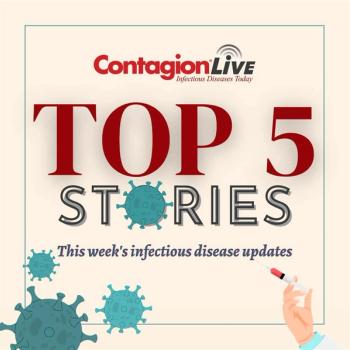
This week, the FDA approved two new drugs, gepotidacin for treating uUTIs in females aged 12 and older, and Tesamorelin F8 for managing excess abdominal fat in adults with HIV-associated lipodystrophy.

Pamela Kushner, MD, offers insights on the newly approved antibiotic including its novel mechanism of action, the new criteria incorporated into the phase 3 studies, and what it means for her to have this treatment available.

The department is set to lay off 10,000 full-time employees, and with combined efforts, expects the reduction to be a total downsizing of 20,000 employees.

In the second installment of our interview with Robert Hopkins Jr, MD, the medical director of the National Foundation for Infectious Diseases (NFID), he discusses some of the takeaways in how public health messaging was lost on the public, which lead to mistrust, and thus leaving open the door for disinformation and misinformation.
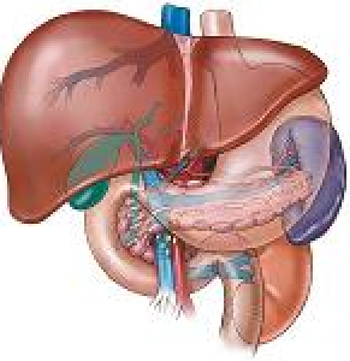
The study, being conducted by Bluejay Therapeutics, will evaluate the efficacy and safety of its monoclonal antibody, brelovitug (also known as BJT-778), compared to delayed treatment.

Kansas now has an outbreak with at least 10 confirmed cases with an expectation from the state's health officials that there will be more.

David Wohl, MD, explains the health risks of visceral fat and the role of treatments like Tesamorelin F8 in managing the condition.

David Wohl, MD, discusses the complexities of diagnosing and the importance of managing ectopic fat in HIV patients.

This is the first in a new class of oral antibiotics for uncomplicated urinary tract infections (uUTIs) in nearly 30 years.

Heather Platt, MD, discusses Merck’s ongoing research into real-world effectiveness and cost-effectiveness and offers a preview of data to be presented at ESCMID 2025.

In the second installment of our COVID-19 pandemic series, Robert Hopkins Jr, MD, the medical director of the National Foundation for Infectious Diseases (NFID), discusses the paradox that has arisen from the COVID-19 vaccines that in spite of their development in record time, what remains is a deeper mistrust in immunizations overall.
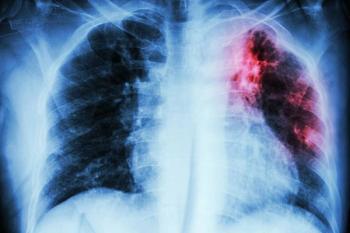
Studies highlight the role of home visits, chest radiography, and sputum monitoring in TB prevention and treatment outcomes.

This method represents a significant advancement in case management for this population. In our latest From Pathogen to Infectious Disease Diagnosis Podcast, Jose Alexander, MD, ABMM, ABAIM, FCCM, CIC, ASCP, BCMAS, provides insights on its capabilities and how it can potentially aid clinicians in reducing antimicrobial resistance.
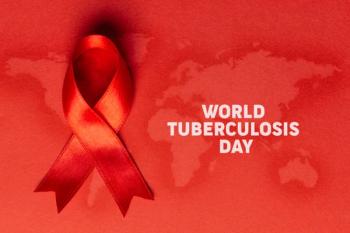
A 26% rise in childhood tuberculosis cases underscores the need for strengthened global TB control efforts.

Monday is World Tuberculosis (TB) Day, and a vaccine developed by the Gates Medical Research Institute is being studied in a phase 3 trial. If approved, the vaccine could potentially prevent pulmonary TB in adults and adolescents.

This week, recent studies include Mandimycin for resistant fungal infections, fluctuating hospital AMR rates, a 6-month HIV treatment, global challenges in hepatitis testing, and the start of a Lassa fever vaccine trial.

Sesh Sundararaman, MD, PhD, discusses his findings and how this approach can be triggered to minimize undesirable treatment features and open the door to newer treatment possibilities.
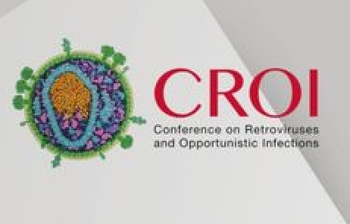
Studies presented included once-yearly lenacapavir formulations for PrEP, bictegravir outperforming darunavir in advanced HIV, Immunocore's IMC-M113V showing viral control and reservoir reduction, and more.

Examined over a 5-year period, the Jackson Health System in Florida reported large volumes of positive cultures for the fungal infection every year and that infection sources expanded over time.

Whitney Hartlage, PharmD, explores the role of expanded UTI definitions and urinalysis interpretation in addressing antibiotic overuse.
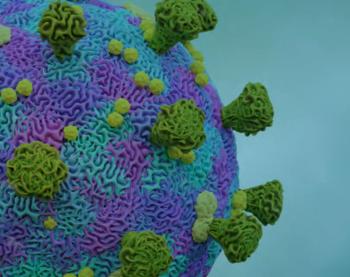
This is the first in a series on the 5 year anniversary of the pandemic. We want to cover a variety of aspects around it, including lessons learned such as testing, vaccine development, and public health policy as well as some ongoing challenges that remain including vaccine hesitancy and an increase in antimicrobial resistant infections.

Zhuo Shang, PhD’s discovery of mandimycin offers a potential solution to drug-resistant infections like Candida auris by targeting phospholipids in fungal membranes.

A long-term study conducted by the Centers for Disease Control and Prevention (CDC) shows early success in the reduction of such infections followed by an increase again during the early pandemic years. Additionally, certain pathogens overall saw an increase, whereas other infections were stable or saw decreases.

Amanda Truong, MD, PhD, provides her perspective on diagnosis, treatment, and environmental factors, considering her involvement in a recent human case.

The Peggy Lillis Foundation's (PLF) CEO and Cofounder Christian John Lillis talks about these important events happening in the capital at the end of this month.

Rachel A Bender Ignacio, MD, MPH explores safety, pharmacokinetics, and future directions for HIV treatment.


Clostridium botulinum and Listeria contamination found in multiple food products, including vegetables, mushrooms, and seafood chowders.

Onyema Ogbuagu, MBBCh, FACP, FIDSA discussed 96% virologic suppression with lenacapavir-based therapy, showing similar results to daily oral regimens.